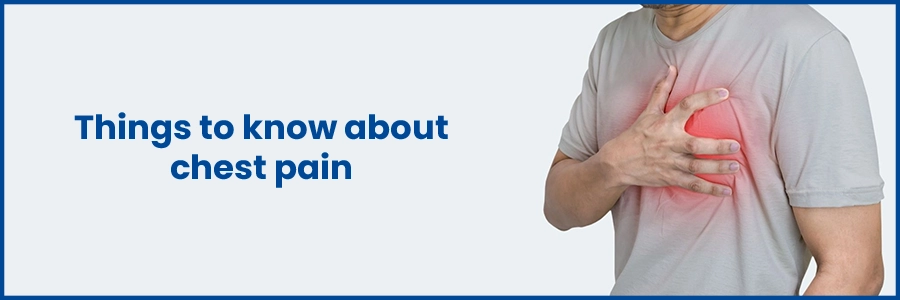- Cardiology 84
- Dermatology 45
- Endocrinology 33
- ENT 16
- Fertility 190
- Gastroenterology 78
- General-Medicine 81
- Gynecology 80
- Hematology 19
- Infectious-Diseases 33
- Neurology 52
- Oncology 34
- Ophthalmology 23
- Orthopedics 69
- Pediatrics 31
- Procedure 23
- Public-Health 144
- Pulmonology 59
- Radiology 8
- Urology 68
- Wellness 161
- Woman-and-child 77

Understanding Chest Pain: Symptoms, Causes, and Prevention
Chest pain is a common symptom that can have many causes. It can be a sign of a serious medical condition and should not be ignored. Understanding the reasons, symptoms, and causes of chest pain is essential for preventing and managing this potentially dangerous symptom.
Chest Pain Reasons
There are numerous reasons why someone may experience chest pain. Some common causes include:
- Angina: This occurs when there is reduced blood flow to the heart muscle, usually due to coronary artery disease.
- Heart attack: A heart attack happens when there is a blockage in one or more of the coronary arteries, causing part of the heart muscle to be deprived of oxygen.
- Pericarditis: This is inflammation of the sac surrounding the heart and can cause sharp chest pain.
- Gastroesophageal reflux disease (GERD): Gastroesophageal reflux disease (GERD) Acid reflux can cause a burning sensation in the chest, often mistaken for heart-related pain.
Chest Pain Symptoms
The symptoms associated with chest pain can vary depending on its underlying cause. However, some common symptoms include:
- Sharp or dull ache in the chest
- Pressure or tightness in the chest
- Radiating pain to the arm, jaw, neck, or back
- Shortness of breath
- Nausea or vomiting
Chest Pain Causes
The causes behind chest pain are numerous and varied. Some potential triggers include:
- Physical activity
- Emotional stress
- Smoking
- Obesity
How To Prevent Chest Pain
Preventing chest pain involves maintaining a healthy lifestyle and managing underlying conditions that may contribute to its development. Some preventive measures include:
1. Eating a balanced diet low in saturated fats and cholesterol.
2. Engaging in regular physical exercise.
4. Managing stress through relaxation techniques such as meditation or yoga.
Ready to take control of your health journey? Book your appointment now and start your path towards wellness today!
Book an AppointmentConclusion
Chest pain is a complex symptom that requires attention. It is crucial to understand its potential causes, recognize the symptoms, and know when to seek medical help. By staying informed and taking preventive measures, you can better manage your health and reduce the risks associated with chest pain. Remember, it is always better to be cautious when it comes to your well-being.
Frequently Asked Questions
No, not all chest pain indicates a serious problem. However, any chest pain should be evaluated by a healthcare professional to determine the cause and appropriate action.
Call 911 or your local emergency number if you experience severe, prolonged chest pain, difficulty breathing, radiating pain, or other symptoms like dizziness, nausea, or sweating.
Yes, intense stress, anxiety, or panic attacks can mimic the symptoms of a heart attack, leading to chest pain. It's essential to consider your overall health and context.
GERD (gastroesophageal reflux disease) is a condition where stomach acid flows back into the esophagus. It can cause chest pain, especially when lying down or after eating.
Yes, strained chest muscles, especially due to vigorous exercise or lifting, can lead to chest pain.
Yes, the symptoms of chest pain in women can sometimes differ from those in men. Women may experience more atypical symptoms, such as fatigue, nausea, or back pain.
Mild chest discomfort can occur during pregnancy due to hormonal changes, but any severe or persistent chest pain should be evaluated by a healthcare provider.
If you're uncertain about the cause of your chest pain or if it's a new or concerning symptom, it's best to consult a healthcare professional for a proper evaluation.
No, it's not safe to ignore any chest pain. While it might not always indicate a serious problem, it's essential to have a healthcare provider assess the cause to ensure your overall health and well-being.

- Cardiology 2132
- Dermatology 168
- Endocrinology 135
- ENT 97
- Fertility 217
- Gastroenterology 232
- General 478
- General-Medicine 1685
- Gynecology 169
- Hematology 85
- Infectious-Diseases 208
- Neurology 207
- Oncology 345
- Ophthalmology 65
- Orthopedics 187
- Pediatrics 83
- Procedure 72
- Public-Health 209
- Pulmonology 126
- Radiology 13
- Second Opinion 311
- Urology 294
- Wellness 600
- Woman-and-child 447
- Others 10217
Related Blogs
If you have any questions, please fill out the enquiry form or call us, and we will get back to you promptly.
040-68334455